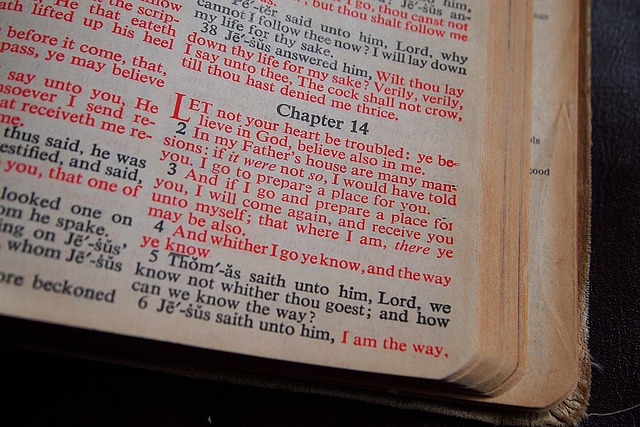
The Bible is full of different genres
Most people don’t stop to think about genres when it comes to Scripture. It’s easy to see it as one big book in a league of its own. But look closer, and you’ll find it’s full of genres like history, poetry, law, letters, and more.
At St Augustine’s College of Theology, you’ll learn about styles and stories as part of the Theology, Ministry and Mission course, available as a Certificate, Diploma or BA degree.
This blog post explores a little more about what lies within the pages of the Bible.

What’s inside the Bible?
Think about books in a bookshop. You’re guided to ‘romance,’ ‘thriller,’ ‘history,’ and so on, but the Bible is also made up of different types of texts, and understanding these can help open them up in new and exciting ways.
All 66 books are written in different ways, and each belongs to its own genre: stories, songs, letters, laws, poetry, prophecy. There are 39 books in the Old Testament and 27 in the New Testament, and calling them all ‘books’ doesn’t quite work.
Some are songs, some letters, some poetry or storytelling, and they were all written in different times and places for different people.
If you’ve ever tried reading the Bible in one, you’ll know it doesn’t flow like a novel. It jumps between themes and tones, and that’s where understanding genre helps. You wouldn’t read a poem, a recipe and a set of instructions in the same way, and the same goes for Genesis, Psalms and Paul’s letters.
Here are some of the themes you’ll read about:
Law and community life
The books of law show what it means to live together as God’s people in worship and justice to harvests, family life and health. They might seem like rules at first, but they’re really about learning to live faithfully in everyday life.
History
The historical books tell stories of promise and failure, faith and doubt. They follow God’s people as they enter the Promised Land, choose kings and discover what faithfulness really costs.
Short stories
Here, the short stories of the Bible feel almost like films. You’ll find tales of courage and loyalty, and they’re vivid, personal and full of drama.
Wisdom and meaning
The books about wisdom in the Bible ask big questions, such as why do we suffer? What makes life meaningful? Proverbs give practical advice, Ecclesiastes sighs at life’s vanity, and Job wrestles with pain and persistence. They don’t give easy answers, but they make you think.

Poetry
Poems are a common theme in Scripture, and the Psalms in particular give words to emotions such as joy, anger, grief and praise. They use rhythm, image and song, and for centuries these poems have helped people pray when words fail.
Prophecy
Prophets speak straight into difficult times. They challenge injustice, call people back to God, and imagine a better world. Their words are bold and unsettling, aimed not at prediction but transformation.
Apocalyptic
You’ll also find apocalyptic writing in the Bible, full of vivid imagery and visions. Often written during times of persecution, this type of writing gives hope in chaos. Daniel and Revelation show that even in dark times, God’s story isn’t finished.

The four Gospels
The Gospels tell the story of Jesus from four angles. Matthew, Mark, Luke and John each highlight different moments and lessons, and together, they reveal the living, breathing heart of the good news.
The New Testament letters
The New Testament letters were written for real people in real churches, and they teach, encourage and challenge. They show how faith worked in everyday life, with all its ups and downs.
Want to study theology in greater depth?
If you’re keen to learn more about the Bible, faith, and how theology connects to everyday life, our Theology, Ministry and Mission pathway is perfect for you.
At St Augustine’s College of Theology, you can study part-time or full-time, and choose to work towards a Certificate, Diploma or BA degree. Along the way, you’ll explore Scripture, ministry, and mission in ways that are practical, inspiring, and relevant.
The course is designed to be flexible and supportive, so whether you’re exploring your faith or thinking about ministry, you’ll find the ideal learning community at St Augustine’s.
Study a Taster Term
Not quite ready to commit to a full qualification? A Taster Term lets you try theological study in a friendly setting. You can read about all our terms by clicking the link below.
Try a free taster event
Join a day taster event to experience St Augustine’s and what we offer. You’ll meet our outstanding tutors, sit in on real lectures and explore our campuses. And what’s more, they are completely free!

